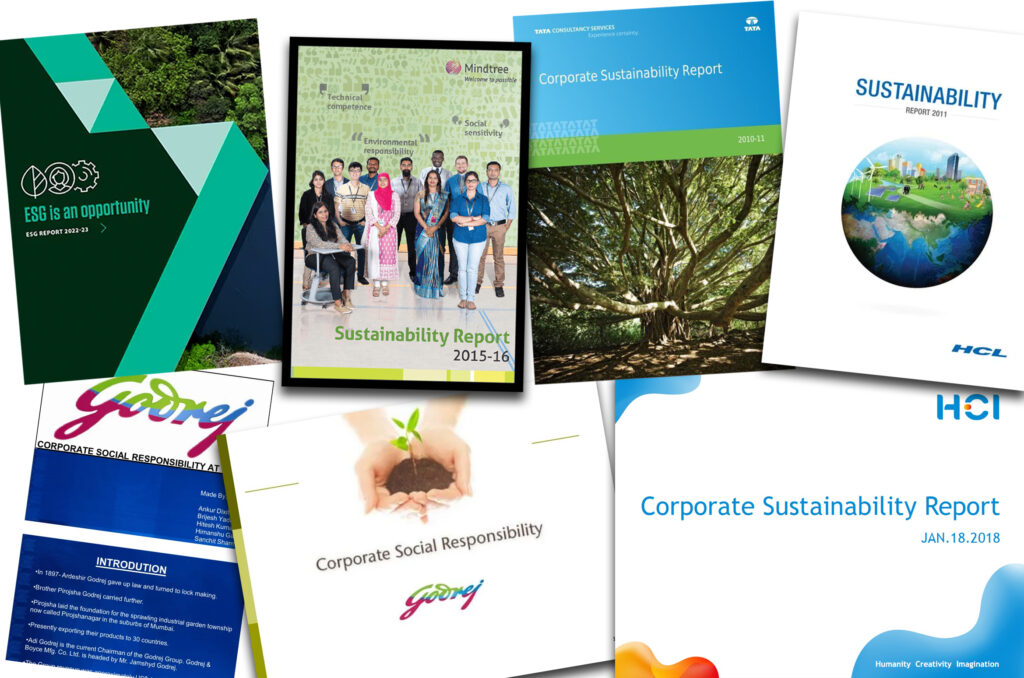Sustainability initiatives by companies should go far beyond regulatory compliance. There is tremendous potential for brands to harness the power of sustainability initiatives in their corporate communication and consolidate their brand reputation and consumer trust.
Genuine and powerful communications highlighting the organization’s commitment and actions on ESG can significantly elevate brands’ competitive edge. This article examines the advantages of integrating sustainability communications into an organization’s strategic brand strategy and the best methods for creating persuasive sustainability messaging.
- Enhanced brand trust by aligning with consumer values
Modern consumers, particularly millennials and Gen Z, prioritize sustainability and are more likely to support brands that align with their values. Companies can resonate with these value-driven consumers by integrating sustainability into their branding and go-to-market strategy.
According to a survey by Neilsen, 81% of global respondents feel strongly that companies should help improve the environment. They say that passion for corporate social responsibility is shared across gender lines and generations. “Millennials, Gen Z, and Gen X are the most supportive, but their older counterparts aren’t far behind.” Clear and transparent communication about sustainable practices helps to align the brand with the values of its target audience and increase customer retention and advocacy, further solidifying the brand’s position in the market.
- Differentiating from Competitors and Premium pricing
In a crowded marketplace, differentiation is critical. Data published by Forbes magazine suggests that about two-thirds of Gen Zs (64%) and millennials (63%) are willing to pay more to purchase environmentally sustainable products or services. Sustainability communications offer a unique opportunity for brands to differentiate themselves and attract customers with like values who are willing to pay a premium for environmentally and socially responsible products and services.
- Driving Media attention
Sustainability often spurs innovation as companies seek to reduce environmental impact and improve resource efficiency. Communicating these innovative practices enhances the brand’s reputation and displays the company as a leader in sustainability while also creating value for stakeholders. This can attract attention from media, investors, and industry peers, further boosting the brand’s profile.
- Building Investor Confidence
Sustainability is becoming increasingly significant for investors in their decision-making. The 2020 EY Climate Change and Sustainability Services (CCaSS) Institutional Investor survey found that, of the 98% of investors surveyed who assess ESG, 72% conduct a structured review of ESG performance, compared with just 32% in the previous survey conducted two years earlier. This underscores the growing importance of environmental, social, and governance (ESG) factors in the investment world. Sustainability communications have immense power in influencing investor perceptions and decisions. Brands can leverage sustainability communications to attract socially responsible investors, prioritizing long-term value creation over short-term gains.
- Employer Branding
A recent report from intranet company Unily revealed that 83% of workers thought their employer was not doing enough to be more sustainable and tackle climate change. Moreover, 65% said they would be more likely to work for a company with robust environmental policies. Sustainability is now integral to employer branding communications, leading to talent attraction and retention.
As sustainability continues to gain prominence, the importance of transparent, consistent, and strategic sustainability communications will only grow. Here are some best practices that can help craft impactful communications.

Best practices in sustainability communications
- Craft target-centric narratives: Each stakeholder uses information on sustainability differently. Employees may view it from their jobs, but investors may view it from a risk management standpoint. On the other hand, shareholders would view it from the financial viability perspective. Communications should not take a one-size-fits-all approach; instead, they should be tailored to the target audience and the goal that motivates them.
- Avoid greenwashing: Refrain from making fictitious or inflated statements regarding environmental initiatives. Inaccuracy and a lack of information might undermine customers’ trust in the brand. It is good to be specific about the commitment, steps taken, future course of action, and anticipated outcomes with a completion date. If business is the cause of adverse effects, it is more credible to identify them upfront and raise awareness of how they are being addressed.
- Beware of green hushing: The negative repercussions of greenwashing may lead businesses to downplay their genuine efforts. Such a bias will defeat brand-building opportunities. Companies should not miss leveraging decent work to build brand trust and reputation. An objective approach is required where authenticity rules the narratives.
- Avoid one-off sustainability efforts: Focusing solely on one-off sustainability events does not demonstrate a commitment to sustainable practices. Efforts should be continuous and integrated into the overall business strategy.
- Storytelling: Formats constrain regulatory reporting. However, nonregulatory communications on sustainability branding can tell a clear and engaging story. Empathic stories free of technical terms can hold readers’ attention. The best storytellers are those who are in the trenches of the initiative. By amplifying the stories, brands can disseminate a single source of truth across various storytelling genres and media.
Sustainability reporting will significantly bolster the brand’s reputation when integrated into the company’s brand strategy. Moreover, impactful communications will position the brand as a leader in the global movement toward a more sustainable future.
Asha Sampath is the Founder of Brand Horizon and an Independent Director on the boards of listed companies. www.brand-horizon.com











